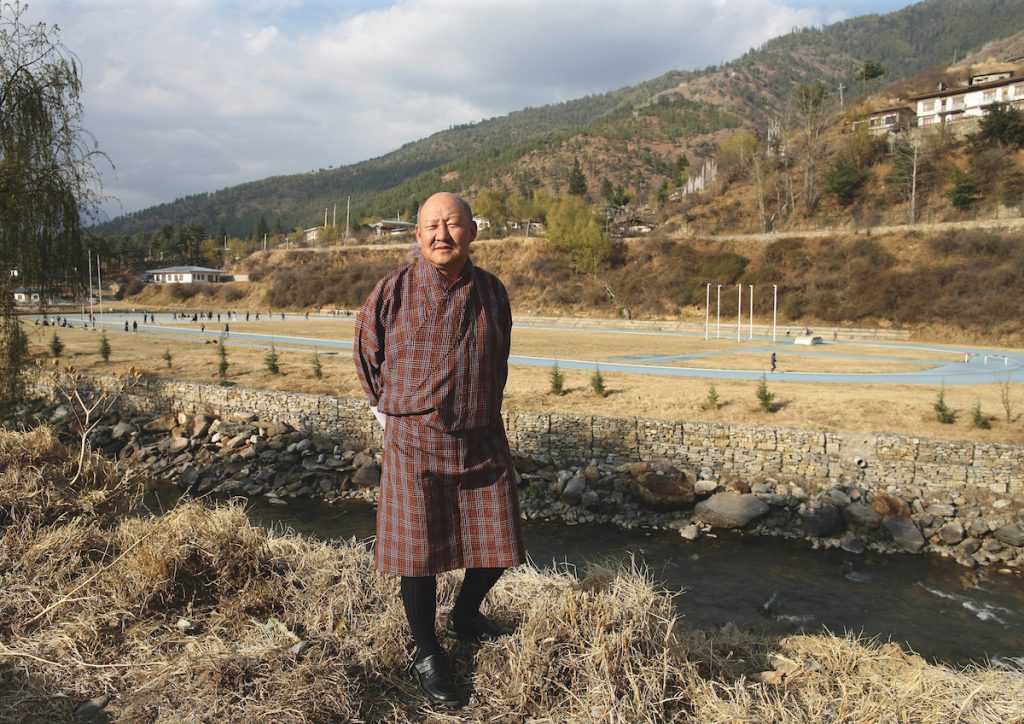Age: 60
Profession: President of the Bhutan Amateur Athletic Federation
Location: Thimphu, Bhutan
Tell me about your work promoting track-and-field in Bhutan. In the early 1990s, I was one of the partners who started Thimphu’s first health club with a gym. Because of that work, in 2000, the Bhutan Amateur Athletic Federation requested that I join them as an athletic federation member. About seven years later, the president resigned, and I was elected president. When I was younger, I used to play basketball, volleyball, and soccer. I don’t play any sports now, but I do my daily workout and meditation every morning.
We’re trying to promote athletics at the grassroots level. With the help of our education ministry, we have put an athletic program in the school curriculum for children aged 7 to 12. From there, we graduate them to the teen athletic program for children aged 13 to 15, and after that we have a youth and juniors program for ages 16 and up.
We’d like to compete with the world at the international level, but of course we started our program quite late. Even in the Southeast Asia region we are performing way behind other countries, so we’re trying to come up slowly, building up.
Will we see a Bhutanese Olympic medalist anytime soon? We will be participating in the London Olympic Games; we’re training an athlete for middle distance running. We don’t think we can win any medals, but it’s international exposure for the athletes. And since we are considered an upcoming country, the International Association of Athletics Federations gives Bhutan preference in the competitions they run [Bhutanese runners are allowed to compete though their times don’t qualify to participate yet]. In another 10 years’ time, I hope our athletes will at least get a medal in the South Asian Games and then achieve success in the international arena. That is our dream.
Besides training children as athletes, what advantages does athletics offer? I’m especially interested in the kids’ athletic program because we have a drug and alcohol problem in Bhutan. A lot of cheap drugs are smuggled into the country through our open border with India, and so we have had many drug overdoses and fatalities among young people here.
We have detox programs, medication, other things like that, but these are short-term remedies. They don’t really cure anything. So if you get children interested in sports, once the athletic habit is inculcated in them, I think they’ll be less likely to say yes to drugs and all that. Our main focus is giving them a healthy life.
My youngest son died of a drug overdose. That’s why I’m giving my attention to this issue and pushing things so much in this area. He was 17 when he died in 2012, and after his death my whole focus and attention turned to the kids in this program so that we can prevent fatalities. I could not save my own child, but I hope I can save a lot of other lives.
Thank you for subscribing to Tricycle! As a nonprofit, we depend on readers like you to keep Buddhist teachings and practices widely available.
